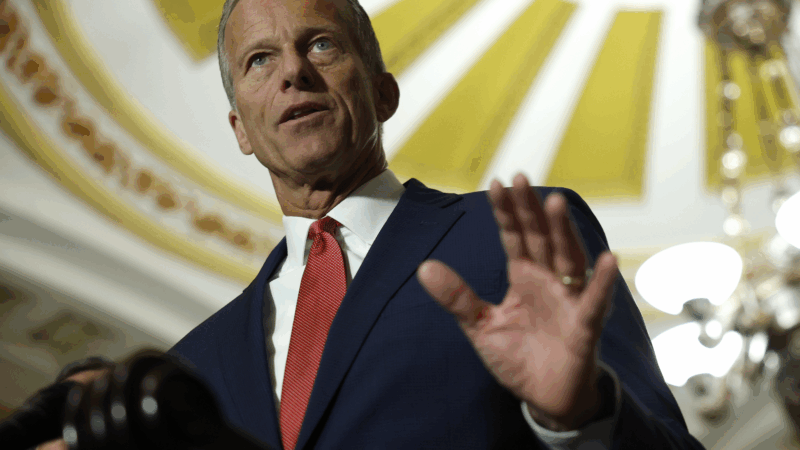Senate Republicans turn to ‘nuclear option’ to speed confirmation of Trump nominees
Senate Republicans have voted to change the rules to make it easier to confirm President Trump’s nominees, allowing the chamber to confirm certain nominees in groups rather than by individual vote.
The vote Thursday comes after months of Republican lawmakers criticizing their Democratic counterparts for dragging out the confirmation process, one of the few elements of power the minority party has in GOP-unified government.
Senate Majority Leader John Thune, R-S.D., began the rules change process this week, which would allow the chamber to consider non-cabinet level executive branch nominees in batches. The senate is expected to finalize the rules change next week.
“It’s time to take steps to restore Senate precedent and codify in Senate rules what once was understood to be standard practice, and that is the Senate acting expeditiously on presidential nominations to allow a president to get his team into place,” Thune said.
The change applies to sub-Cabinet, ambassador and executive branch nominees. It does not apply to judicial nominees.
Over one thousand positions require Senate confirmation, an often-onerous and lengthy process. According to the Center on Presidential Transition, the average time to confirm a president’s nominee has nearly quadrupled from an average of 49 days to 193 days during the last six presidential administrations.
In the Senate, a single senator can delay a nominee’s confirmation.
Senate Minority Leader Chuck Schumer, D-N.Y., has been vocal in opposing the rules change.
“Make no mistake, this move by Republicans was not so much about ending obstruction as they claim—rather it was another act of genuflection to the executive branch,” Schumer said Monday.
After the vote, Senate Republicans used the rule to advance a package of 48 nominees, which will likely be confirmed next week.
This is not the first time the chamber has used the nuclear option. In 2013, Democrats got rid of the 60-vote threshold for most nominations. Republicans followed suit in 2017 to extend the change to Supreme Court nominees. They changed the rules again during the first Trump administration to limit debate time for some nominees.
Homeland Security suspends TSA PreCheck and Global Entry airport security programs
The U.S. Department of Homeland Security is suspending the TSA PreCheck and Global Entry airport security programs as a partial government shutdown continues.
FCC calls for more ‘patriotic, pro-America’ programming in runup to 250th anniversary
The "Pledge America Campaign" urges broadcasters to focus on programming that highlights "the historic accomplishments of this great nation from our founding through the Trump Administration today."
NASA’s Artemis II lunar mission may not launch in March after all
NASA says an "interrupted flow" of helium to the rocket system could require a rollback to the Vehicle Assembly Building. If it happens, NASA says the launch to the moon would be delayed until April.
Mississippi health system shuts down clinics statewide after ransomware attack
The attack was launched on Thursday and prompted hospital officials to close all of its 35 clinics across the state.
Blizzard conditions and high winds forecast for NYC, East coast
The winter storm is expected to bring blizzard conditions and possibly up to 2 feet of snow in New York City.
Norway’s Johannes Klæbo is new Winter Olympics king
Johannes Klaebo won all six cross-country skiing events at this year's Winter Olympics, the surpassing Eric Heiden's five golds in 1980.







